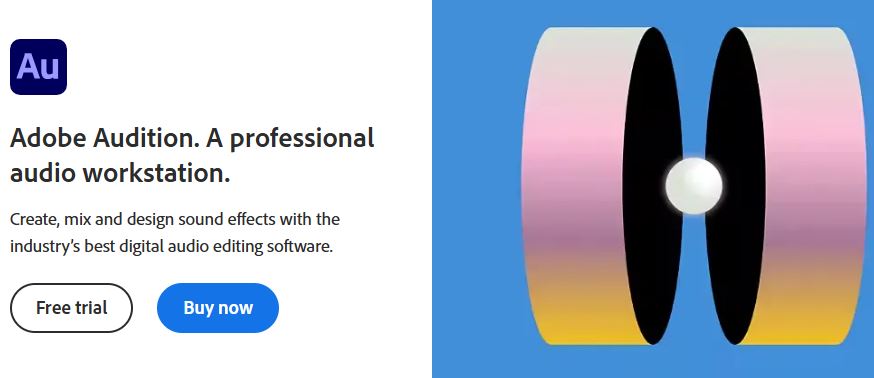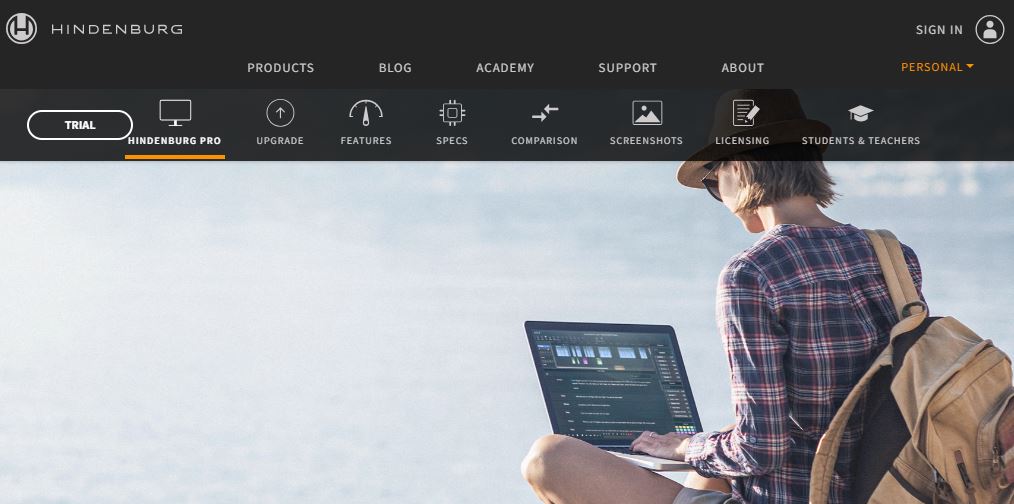Starting a podcast can be exciting but choosing the right recording software makes all the difference. High-quality sound, user-friendly interfaces, and excellent editing tools ensure your podcast stands out. Here’s a curated list of the best software options available, each with its own unique features, pros, and cons to help you make an informed choice.

Table of Contents
ToggleWhy You Need the Best Software for Podcast Recording
Professional Sound Quality: High-quality software ensures clear, crisp, and distortion-free audio for a polished listening experience.
Ease of Editing: Advanced tools streamline the editing process, allowing for seamless transitions, noise reduction, and customization.
Time Efficiency: User-friendly interfaces and automation tools save time during recording and post-production.
Remote Collaboration: Many top tools support remote guest recording with studio-quality sound.
Creative Flexibility: Access to multitrack editing, effects, and plugins boosts creativity and uniqueness.
Scalability: Whether you’re a beginner or a pro, these tools grow with your skill level and needs.
Publishing and Integration: Some software integrates with hosting platforms, simplifying podcast distribution.
Brand Consistency: Ensures a professional and consistent audio brand, essential for building a loyal audience.
Best Software for Podcast Recording
1. Adobe Audition

Adobe Audition is a top-notch, professional-grade audio editing software known for its extensive editing and sound restoration tools. It’s perfect for podcasters who prioritize high-quality sound and want full control over editing.
Key Features:
Multitrack editing
Noise reduction tools
Audio cleanup and restoration
Extensive plugin support
Integration with other Adobe products
Pros: Industry-standard tools, seamless integration with Adobe suite, and advanced audio editing capabilities.
Cons: Steeper learning curve, monthly subscription required.
2. Audacity
Audacity is a free, open-source audio recording software, making it an accessible option for beginners and budget-conscious podcasters. Despite being free, Audacity provides many essential tools for recording and basic editing.
Key Features:
Multi-track editing
Noise reduction and effects
Audio format conversion
Plugin support
Pros: Free, extensive community support, easy-to-use.
Cons: Limited advanced features, less polished interface.
3. GarageBand
GarageBand is a popular choice among Mac users due to its intuitive interface and powerful editing tools. While it’s not as advanced as some professional software, it’s more than capable of creating high-quality podcasts.
Key Features:
Preloaded sounds and loops
Built-in virtual instruments
Multitrack recording
iCloud compatibility
Pros: Free for Mac users, simple to learn, integrates well with iOS devices.
Cons: Only available on Mac, lacks some advanced features.
4. Reaper
Reaper is a highly customizable and affordable audio workstation for those who don’t mind an initial learning curve. It’s known for its professional features and low cost, making it a popular choice for podcasters and musicians.
Key Features:
Highly customizable interface
Multitrack recording and editing
Extensive plugin support
VST and AU plugin compatibility
Pros: Affordable, robust features, customization options.
Cons: Learning curve, interface can feel overwhelming.
5. Hindenburg Journalist

Hindenburg Journalist is designed specifically for spoken-word productions like podcasts, making it especially popular among journalists and podcasters. The software offers intuitive tools for voice editing and storytelling.
Key Features:
Automatic sound leveling
Multitrack editing
Voice profiler tool
Publishing options directly within the app
Pros: Excellent for voice recording, intuitive interface, unique podcast-focused features.
Cons: Limited music production capabilities, not suitable for non-voice recording.
Also Read: 10 Best Software for Photo Organizing and Editing Features
6. Zencastr
Zencastr is an online recording tool tailored for remote podcasting, with simple recording and post-production features. It’s ideal for podcasters who often interview guests remotely.
Key Features:
High-quality online recording
Separate audio tracks for each guest
Built-in automatic post-production
Cloud storage
Pros: No installation needed, designed for remote recording, easy to use.
Cons: Requires a stable internet connection, limited advanced editing features.
7. Riverside.fm
Riverside.fm is another powerful option for remote podcasting, with high-definition recording capabilities for both audio and video. It’s a great choice for podcasters who want to create video content alongside audio.
Key Features:
Local recording for higher quality
HD video recording
Separate audio and video tracks
Live audience interaction features
Pros: High-quality recording, video capabilities, built-in editing tools.
Cons: Can be costly, requires stable internet for remote recording.
8. SquadCast
SquadCast is a remote recording platform with a simple interface and high-quality audio capture. It’s designed for podcasters who need to interview guests and want studio-quality results.
Key Features:
Studio-quality audio recording
Separate tracks for each speaker
Progressive uploads for stable recordings
Cloud storage
Pros: Easy remote recording, high-quality audio, secure backups.
Cons: Higher price, lacks extensive editing features.
9. Descript
Descript is a unique software that combines audio editing with text editing, making it simple to edit a podcast by simply editing a transcript. It’s a good choice for podcasters who want an intuitive editing experience.
Key Features:
Text-based audio editing
Multitrack recording
Automatic transcription
Overdub feature (text-to-speech)
Pros: Intuitive for text editing, automatic transcription, ideal for beginners.
Cons: Subscription-based, less flexible for advanced audio editing.
10. Anchor by Spotify

Anchor is a free podcast hosting and recording platform with built-in tools for creating and publishing podcasts. It’s designed for podcasters who want a one-stop-shop without extensive editing needs.
Key Features:
Mobile and web-based recording
Integrated hosting and publishing
Built-in sound effects and transitions
Distribution to Spotify and other platforms
Pros: Free, easy to use, integrates with Spotify.
Cons: Limited editing features, lacks advanced audio tools.
Best Podcast Recording Software at a Glance
| Software | Key Features | Pros | Cons |
|---|---|---|---|
| Adobe Audition | Multitrack editing, noise reduction, plugins | High-quality tools, Adobe suite | Subscription, steep learning |
| Audacity | Free, multitrack, noise reduction, plugins | Free, easy for beginners | Limited advanced features |
| GarageBand | Loops, instruments, multitrack, iCloud | Free for Mac, easy to learn | Mac only, limited advanced tools |
| Reaper | Customizable, plugins, multitrack | Affordable, customizable | Learning curve, complex interface |
| Hindenburg Journalist | Sound leveling, voice profiling, easy publishing | Great for voice, intuitive | Limited music options |
| Zencastr | Online, post-production, cloud storage | Remote-friendly, simple | Internet-dependent |
| Riverside.fm | Local HD recording, audience interaction | High-quality, video support | Can be costly |
| SquadCast | Studio-quality remote, secure backups | High audio quality, easy remote | Expensive, few editing features |
| Descript | Text-based editing, transcription, overdub | Simple editing, transcription | Subscription, fewer editing tools |
| Anchor by Spotify | Free, hosting, mobile/web recording | Easy to publish, free | Basic editing, limited features |
Final Thoughts on Podcast Recording Softwares
Choosing the right podcast recording software depends on your unique needs, skill level, and budget. Whether you’re a beginner looking for a free and user-friendly option or a seasoned podcaster seeking high-quality, professional-grade tools, there’s a solution to match. Adobe Audition and Hindenburg Journalist provide advanced editing capabilities ideal for professionals, while Audacity and Anchor by Spotify cater to newcomers with limited budgets.
Ultimately, the best software enhances your workflow, boosts productivity, and delivers top-notch audio quality. Take time to explore and test the features that matter most to you—whether it’s remote recording, multitrack editing, or easy publishing—and let your podcasting creativity thrive!
Interesting Reads
5 Best WooCommerce Donation Plugins
How to Add WooCommerce Add to Cart Button Under the Image in Divi




